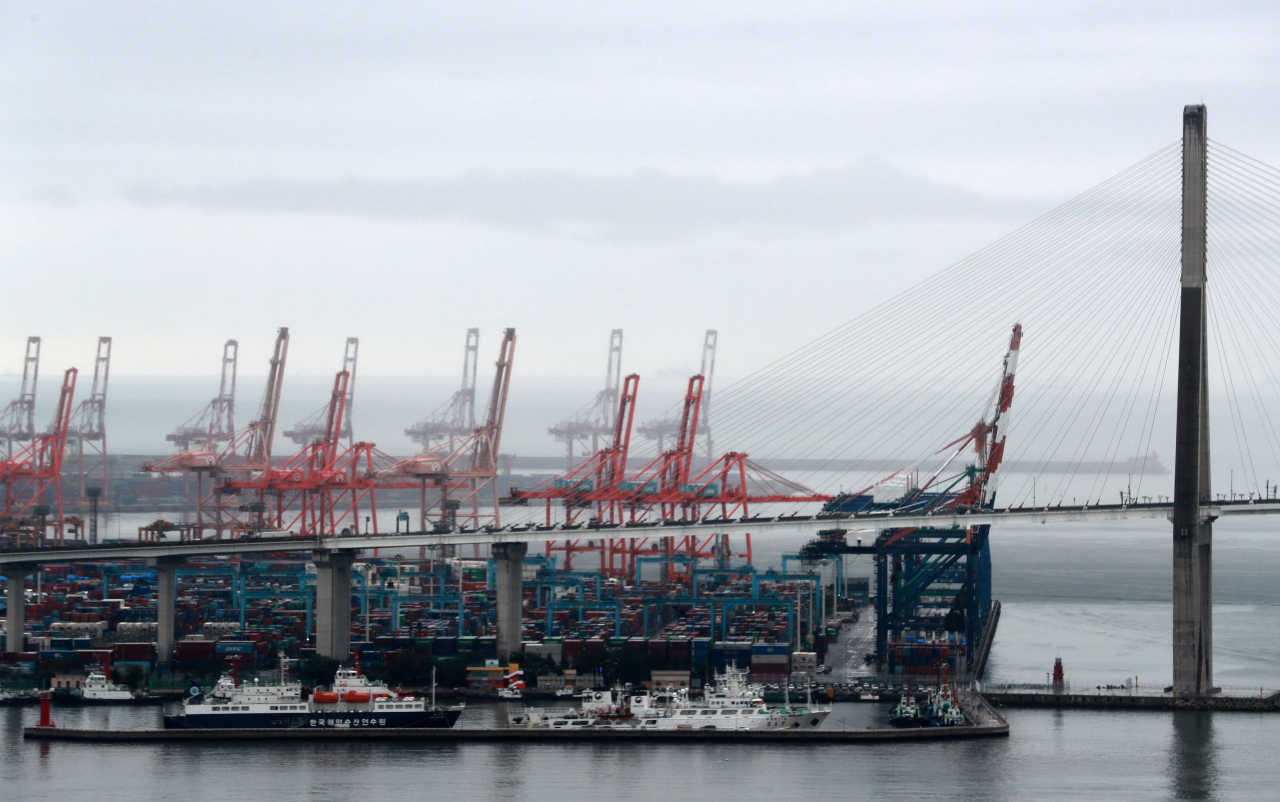'Korean economy may lose steam due to household debts'
By Park Han-naPublished : Aug. 23, 2021 - 18:02

South Korea’s economy will grow 3.9 percent this year, an Asian regional macroeconomic surveillance organization said Monday, presenting a more pessimistic outlook than what the government forecast citing growing household debts.
The ASEAN+3 Macroeconomic Research Office said Asia’s fourth-largest economy continues its strong rebound in 2021 buoyed by a sustained global recovery and robust demand for electronics and autos. But it warned that the country’s growing household debt could undermine its growth momentum.
“Growth is expected to rebound from minus 0.9 percent last year to 3.9 percent in 2021 and 3.0 percent in 2022, on the back of a solid recovery in exports and domestic investment,” the AMRO said in its report. The international organization’s report was based on an annual consultation that was held virtually in the first quarter of this year and data from up to July 5.
Its 2021 outlook was revised up by 0.7 percentage point from its March forecast while the figure for next year remained unchanged.
Given that the government has imposed the highest level of social distancing measures in Seoul and its surrounding areas since July 12, the economic fallout caused by the fourth wave of COVID-19 was not reflected in the organization’s outlook. Still, AMRO’s 3.9 percent growth outlook falls short of what the Finance Ministry and the central bank expected at 4.1 percent and 4.0 percent, respectively.
To prevent the economy’s recovery momentum from being whittled away by uncertainties around containing the COVID-19 pandemic, the US-China trade conflict and household indebtedness, “expansionary fiscal policy and accommodative monetary policy should be maintained,” it said in the report.
The Bank of Korea has kept the benchmark interest rate at 0.5 percent since May 2020 after slashing it by a combined 0.75 percentage point in the March-May period last year, in what the AMRO analyzed as “sufficiently accommodative“ to support the ongoing economic recovery.
Economy experts expect the central bank to raise the base rate this month or October.
The AMRO also said that rigid macro-prudential measures need to remain in place due to a buildup of household debt and a surge in asset prices which resulted in financial imbalances.
According to the Korea Economic Research Institute earlier this month, the country’s household debt stood at 1,936 trillion won ($1.65 trillion), exceeding the gross domestic product logged last year. It also recorded a 9.6 percent on-year growth in household debt, the fastest among major economies.
Expressing concerns over uncertain employment prospects that threaten low-income earners and small businesses grappling with wavering business conditions, the AMRO said financial support measures should target vulnerable groups affected by the pandemic to achieve stronger and more inclusive economic growth.
“The authorities should continue to closely monitor the loan quality and lending standards of financial institutions. The extension of maturity and repayment deferrals, while providing temporary relief to liquidity-constrained businesses, should be reviewed regularly and phased out when appropriate,” the report read.
The AMRO is a regional macroeconomic surveillance organization that aims to contribute to securing macroeconomic and financial stability in 10 ASEAN member states as well as in South Korea, China and Japan.








![[Graphic News] More Koreans say they plan long-distance trips this year](http://res.heraldm.com/phpwas/restmb_idxmake.php?idx=644&simg=/content/image/2024/04/17/20240417050828_0.gif&u=)
![[KH Explains] Hyundai's full hybrid edge to pay off amid slow transition to pure EVs](http://res.heraldm.com/phpwas/restmb_idxmake.php?idx=644&simg=/content/image/2024/04/18/20240418050645_0.jpg&u=20240419100350)






![[From the Scene] Monks, Buddhists hail return of remains of Buddhas](http://res.heraldm.com/phpwas/restmb_idxmake.php?idx=652&simg=/content/image/2024/04/19/20240419050617_0.jpg&u=20240419175937)

![[KH Explains] Hyundai's full hybrid edge to pay off amid slow transition to pure EVs](http://res.heraldm.com/phpwas/restmb_idxmake.php?idx=652&simg=/content/image/2024/04/18/20240418050645_0.jpg&u=20240419100350)

![[Today’s K-pop] Illit drops debut single remix](http://res.heraldm.com/phpwas/restmb_idxmake.php?idx=642&simg=/content/image/2024/04/19/20240419050612_0.jpg&u=)